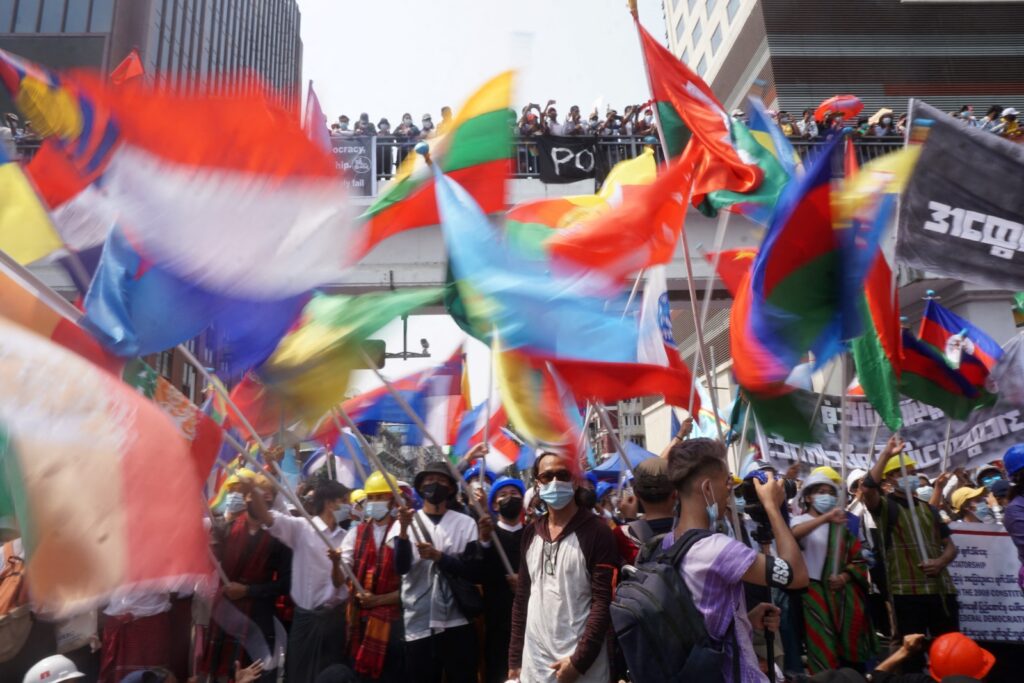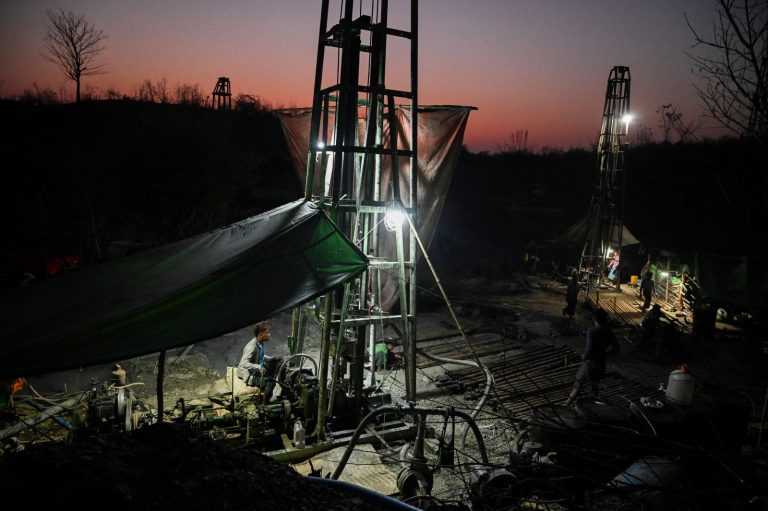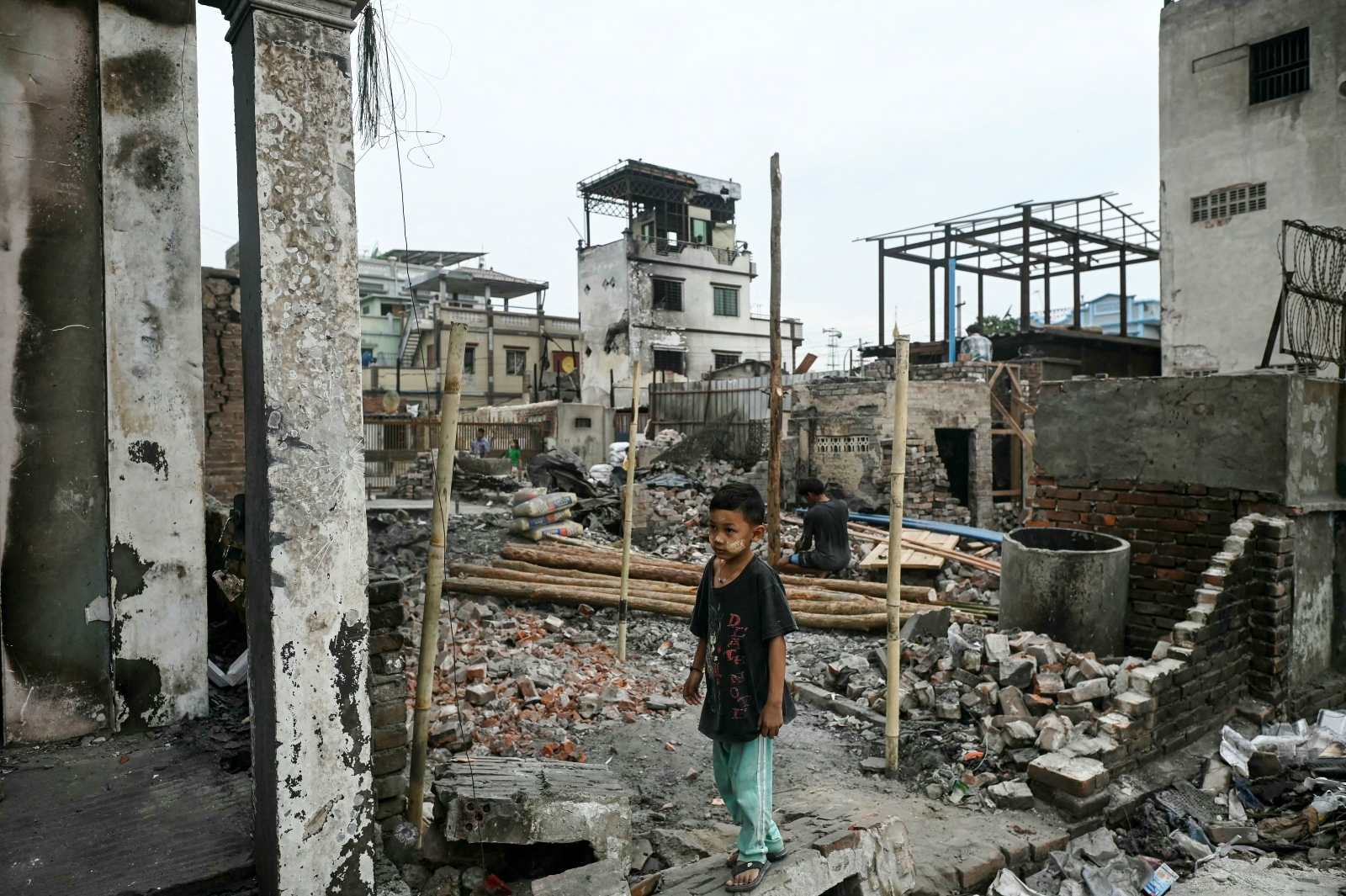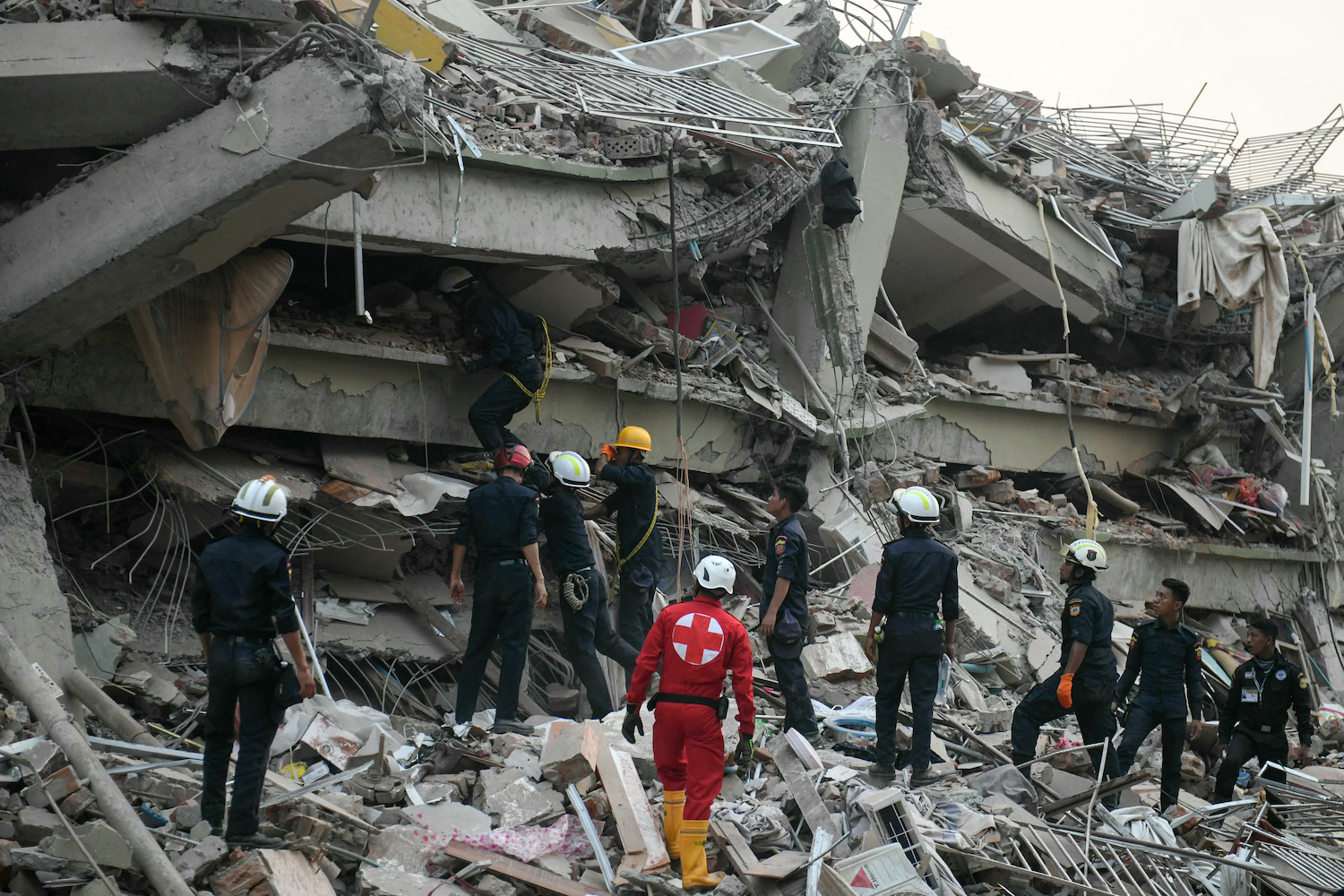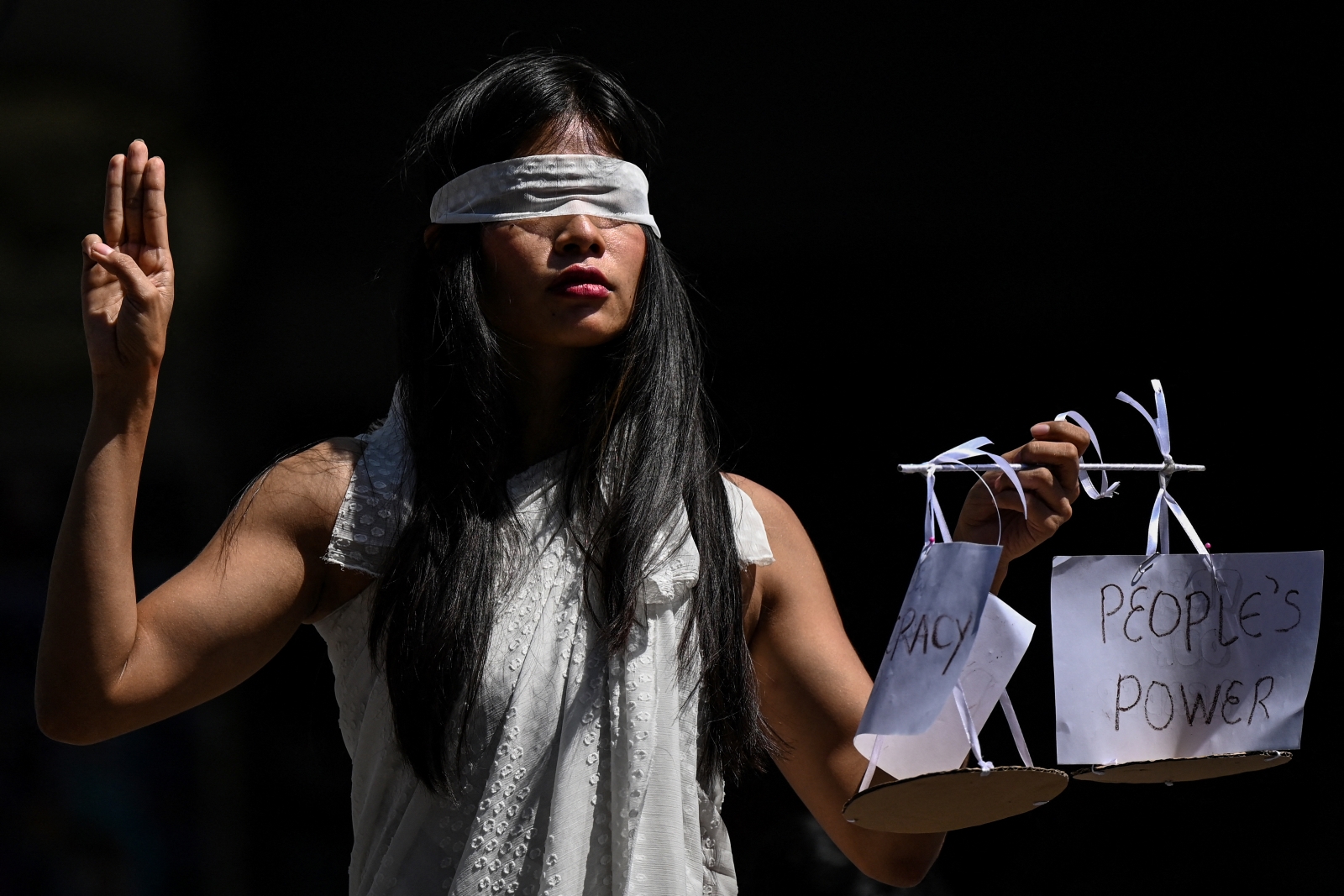OPINION
Resistance coordination bodies have failed to forge a unified vision of the country’s future, meaning it’s time for a better-structured, more inclusive approach.
By AUNG KO KO | FRONTIER
More than three years on from the 2021 military coup, armed resistance has weakened Myanmar’s junta seemingly to the point of desperation. This has prompted many to consider the consequences of regime collapse.
Some fear the country will fragment violently along ethnic lines. But as the military tries to cling on to power, its usual tactic of stoking ethno-religious nationalism has been challenged by more inclusive ideas of national identity. Moreover, the Bamar Buddhist heartland in Sagaing, Magway and Mandalay regions has become a hub of armed resistance, with locals joining hands with Kachin and Chin Christians. Other parts of Myanmar have seen similar cooperation across communal divides.
The current struggle is therefore an opportunity for communities to overcome their historic grievances and find common ground. However, a meaningful political agreement to build a post-junta, federal society remains elusive. This fact is demonstrated by the joint position statement in January from the Karen National Union, Karenni National Progressive Party, Chin National Front and National Unity Government. These are important organisations in the fight against military dictatorship, but the statement lacked signatures from other major groups, including those like the Kachin Independence Army that have cooperated militarily with the NUG.
Seeking a wider consensus is particularly challenging when the identities of individual groups are being contested from within. The Chin and Kachin, for instance, are grappling with their own internal diversity and divisions, making the boundaries of each community unclear. In addition, states such as Shan have many distinct groups living side-by-side, while other states that have one clearly dominant group must address their own histories of discrimination against minorities, such as the treatment of Muslim Rohingya and Kaman in Rakhine State.
But there are advantages to the current situation. Attempts by successive military governments to forcibly assimilate some groups and exclude others have spectacularly failed to create a unified country. Other political forces have also tried to impose their will on the less powerful. Members of the Committee Representing Pyidaungsu Hluttaw, a resistance legislature mostly composed of National League for Democracy MPs elected in 2020, have arguably tried to use their electoral mandate to claim authority over groups that were marginalised by Myanmar’s pre-coup political order. But in the current reality, the MPs are forced to compromise.
The anti-junta movement’s diversity and lack of any one truly dominant player may seem like a weakness to foreign observers. However, it allows for power politics to give way to a politics of cooperation and consensus, where different actors have little choice but to reconcile their interests.
Meanwhile, the military-drafted 2008 Constitution has been stripped of any remaining legitimacy, leaving a blank slate on which to draft new rules of the game, acceptable to groups that have long been opposed to the constitution and the unitary state structure it imposes on the country. It was in this spirit that the National Unity Consultative Council was created soon after the coup. The council was granted broad policy-making powers by the Federal Democracy Charter, a loose framework for Myanmar’s future agreed on by many resistance actors. The NUCC was also tasked with writing a new, transitional constitution for the country.
However, the council has come to a virtual standstill. The principle of achieving consensus among its disparate members, as well as uncertainty over its mandate vis-à-vis other resistance institutions like the NUG, has caused deadlock and hurt its legitimacy. Influential organisations such as the Shan Nationalities League for Democracy and Kachin Political Interim Coordination Team have quit. Meanwhile, closed-door meetings and limited public information about its activities have made it feel exclusive.
The People’s Assembly in early April was an opportunity to turn things around. The federal charter mandates the NUCC to hold this online assembly every six months, to ratify key policies with a wider range of stakeholders, but the last one had been in January 2022. However, the recent assembly failed to secure agreement on any transitional arrangements, let alone a constitution, and disagreements during the sessions only did more damage to relationships. The CRPH and NUG even left before the final day.
There have been parallel efforts to devise a federal blueprint for Myanmar. A group called the People’s Representatives Committee for Federalism, which includes organisations that are both inside and outside of the NUCC, published a draft constitution earlier this year. Additionally, members of the NUG produced their own draft, expanding on the federal charter, and submitted the document to the NUCC in September last year. These drafts are potentially useful proposals, but the challenge is how to scrutinise and combine their contents and then reach consensus on an official document.
Reaching such a consensus, on a constitution or any other vital matter, requires a properly structured dialogue involving a wide range of groups. This dialogue should not have any predetermined political goals – particularly regarding the shape and degree of autonomy of ethnic states – if powerful actors with confederate aspirations such as the Arakan Army are to take part. Those with more federal ambitions, involving less autonomy than a confederation, must be prepared to bargain.
The focus should be on creating realistic transitional arrangements for the short-term. These can provide stability and space for the longer-term objectives of ending armed conflict and establishing peaceful coexistence between communities. It would be a mistake, for instance, to insist that armed groups disarm as a precondition, rather than a possible outcome, of talks.
Successful talks may also require third-party mediation from professionals with experience of multi-stakeholder dialogues. This is something of a taboo in Myanmar, given the controversial role of third parties during the pre-coup peace process. However, a professional mediator could help move the talks along and avoid unnecessary tensions.
The federal charter gives the NUCC the authority to approve any new constitution, but it’s unclear whether it’s really capable of delivering the kind of dialogue outlined above. The council therefore urgently needs reform, including to its membership structure. This is currently dominated by civil society and nongovernment organisations, to the exclusion of groups that are more representative of Myanmar society at large. In particular, space should be made for emerging forces that represent genuine shifts in society, including the post-coup People’s Defence Forces and their political wings which are operating on the ground.
The NUCC also needs to adapt its consensus-based decision-making, depending on the issue at hand. The formation of a new state within the federal union, for instance, might require a supermajority of two-thirds of the vote, while other matters could be decided by a simple majority. It may also sometimes be necessary to give veto powers to certain groups.
The council also needs to ensure more public participation and seek input from independent civil society, to avoid making elite-only agreements. In addition, the responsibility of councillors needs to be defined, and ways found to hold them accountable. The federal charter may be a barrier to some of the necessary reforms, but the council is in a unique position to amend it.
People who don’t fully trust each other can still have an effective dialogue, and this by itself will help build trust over time. Since the 1962 coup, when military rule began, there’s been no chance for a proper discussion about how to create a federal Myanmar. We therefore mustn’t squander this critical moment in our history, where we can collectively imagine a peaceful, multi-nation state that ensures the rights of each community and individual.
Aung Ko Ko is the executive director of Mosaic Myanmar, a local civil society organisation promoting diversity and inclusion, and holds a master’s degree in Conflict Resolution and Coexistence from Brandeis University in the United States. The views in this article are his own.


